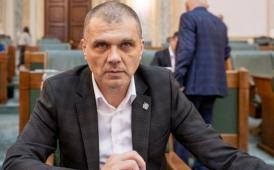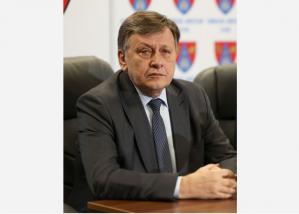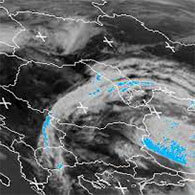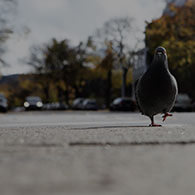Mazare, in atentia Departamentului de Stat al SUA
Mazare, in atentia Departamentului de Stat al SUA 11732
Marime text
11732
Marime text
Raportul Departamentului de stat al SUA privind respectarea drepturilor omului în România îl menţionează şi pe primarul Radu Mazăre.
Edilul Constanţei apare la secţiunea „libertatea presei", alături de nume cum ar fi Gheorghe Ciuhandru, Norica Nicolai, Corneliu Vadim Tudor, Liviu Dragnea şi Adrian Păunescu. Raportul menţionează că în iunie 2008 primarul PSD-ist a câştigat procesul împotriva jurnalistei Feri Predescu care „l-a acuzat că ar avea legături cu infractori locali". „Predescu, care era la vremea aceea corecpondent local pentru TVR şi Evenimentul Zilei, a fost condamnată să îi dea lui Mazăre despăgubiri şi să publice o scrisoare deschisă în care să-şi ceară scuze într-un ziar naţional şi într-unul local", se arată în raport. Departamentul nu a omis să menţioneze şi reacţia pe care a avut-o Agenţia de monitorizare a presei Active Watch, care a condamnat decizia instanţei şi care, împreună cu secretarul general al Reporterilor fără frontiere a semnat o petiţie pentru a o susţine pe Feri Predescu. În continuare puteţi citi textul integral al raportului, postat pe site-ul Ambasadei Statelor Unite ale Americii la Bucureşti.
Reports on Romania
2008 Human Rights Report: Romania
Bureau of Democracy, Human Rights, and Labor
2008 Country Reports on Human Rights Practices
February 25, 2009
ROMANIA
Romania is a constitutional democracy with a multiparty, parliamentary system and a population of approximately 21.4 million. The bicameral parliament (Parlament) consists of the Senate (Senat) and the Chamber of Deputies (Camera Deputatilor); both are elected by popular vote. The 2004 election of President Traian Basescu and November 2008 parliamentary elections were judged generally free and fair. Civilian authorities generally maintained effective control of the security forces.
The government addressed some human rights problems during the year; however, abuses continued to occur. There were reports of police and gendarme harassment and mistreatment of detainees and Roma. Prison conditions remained poor. The judiciary lacked the public's trust in its ability to apply the law impartially. Restrictions on freedom of religion continued to be a great concern due to the restrictive, discriminatory religion law. Property restitution remained slow, and the government failed to take action to return the Greek Catholic churches confiscated by the communist government in 1948. Corruption remained a widespread problem, and the country continued to be the subject of regular European Commission monitoring for progress in judicial reform and combating corruption. There were continued reports of violence and discrimination against women as well as significant lapses in the protection of children's rights. Persons were trafficked for sexual exploitation and also for labor and forced begging. The neglect of and inadequate assistance for persons with disabilities was a problem. While there were no confirmed reports of societal violence against Roma this year, extensive discrimination against Roma continued to be a problem. Homosexuals continued to suffer societal discrimination. Discrimination against persons with HIV/AIDS, particularly children, was a serious problem.
RESPECT FOR HUMAN RIGHTS
Section 1 Respect for the Integrity of the Person, Including Freedom From:
a. Arbitrary or Unlawful Deprivation of Life
There were no reports that the government or its agents committed arbitrary or unlawful killings.
The Association for the Defense of Human Rights in Romania-the Helsinki Committee (APADOR-CH) asserted in previous years that the police made excessive use of firearms in cases of minor crimes.
On May 20, according to media reports, a transportation police agent shot and killed Vasile Manole, aged 21, who, alongside two other individuals, was allegedly stealing rail copper parts in Cernavoda. The three men reportedly did not stop when the police agent shot two warning shots. The Constanta prosecutor's office investigated the police agent for manslaughter.
There were no reported developments in the case of a 22‑year‑old Romani man, Adrian Cobzaru, shot and killed by a police officer in Bucharest in 2006 while he was allegedly stealing goods.
b. Disappearance
There were no reports of politically motivated disappearances.
c. Torture and Other Cruel, Inhuman, or Degrading Treatment or Punishment
The constitution and law prohibit such practices; however, there were numerous NGO reports of police mistreatment and abuse of detainees and Roma, primarily through excessive force and beatings by police. There were also reports of mistreatment of abandoned children with physical disabilities in state institutions and of prolonged incarceration for misbehavior within state orphanages.
In many cases of police violence against Roma, police claimed they used force in self‑defense, responding to alleged hostility by Romani communities during police raids in search of criminal offenders. The Romani Center for Social Intervention and Surveys (Romani CRISS) and other NGOs continued to claim that police used excessive force against Roma and subjected them to maltreatment and harassment.
APADOR-CH reported cases of alleged police abuse. On April 12, Petre Cosmin Angelina was taken to the police headquarters in Campulung Muscel after he asked two police officers why they wanted to see his identification card. The officers allegedly beat him but did not bring any charges against him, did not ask him to write a statement, and released him one hour later. Angelina filed a complaint against the police with the prosecutor's office.
On the morning of May 23, the special forces of Satu Mare police reportedly broke down the door of a Romani person, beat him, and took him to the police precinct, where they continued to beat him upon his refusal to sign a declaration dictated by the police.
On July 4, the special forces of Satu Mare police allegedly physically abused a Romani couple and their minor daughter, taking them to the police precinct and beating them, following the couple's conflict with a neighbor.
On August 30, a traffic police officer stopped Iulian Rafael Macoveanu in Bucharest and demanded to see what he had in his plastic bag. Macoveanu had 52 pills of methadone and the prescription for the drug substitute. The officer called the precinct, and two more police officers arrived, allegedly brutalized and handcuffed Macoveanu, and took him to police headquarters. The police then allegedly beat him, confiscated his pills, fined him for public scandal, and released him without returning his pills. Police later denied that they confiscated the pills.
During the year three police agents were under criminal investigation for committing bodily harm with intent and serious bodily harm while on duty.
There were no further developments in the cases of criminal investigation police and the special intervention squad raids against Romani communities in Liesti, Galati County, in April 2007 and in Ciurea, Iasi County, in July 2007. The police claimed the raids were to arrest several convicted criminals. During the raids, police shot seven Roma with rubber bullets in Liesti and three in Ciurea, including two minor girls. According to police reports, the Roma's violent reaction led police to fire warning shots. The Roma claimed that the police opened fire on bystanders in Liesti who went outside to see what was happening. The family of one victim from Ciurea filed a criminal complaint against two police officers and the chief of the Iasi police inspectorate.
On September 19, APADOR-CH requested the police to expedite the investigation in the June 2007 case of three police officers' alleged assault of a university lecturer, Serban Marinescu. There were no developments in the case at year's end.
There was no further development in the August 2007 alleged beating of two persons by a police officer from Bucharest police precinct 22.
Criminal complaints alleging police abuse remained pending in the 2006 cases involving a complaint filed by five Roma in the village of Gepiu, Bihor County; the complaint filed by five Roma in the village of Bontida, Cluj County; and the case filed by Roma in Pata Rat, Cluj County.
In March the European Court of Human Rights (ECHR) found the country responsible for racially motivated inhuman and degrading treatment in the case of a Romani juvenile, Constantin Stoica, aged 14 at the time of the incident, whom police officers beat in the village of Gulia, Suceava County, in 2001. The ECHR also decided that the incident was not properly investigated and granted compensation of 15,000 euros (approximately $21,000) to the plaintiff.
In December the ECHR ruled against the country in the case of Vili Rupa. The state was charged with inhuman and degrading treatment, lack of effective investigation, and violation of the right to fair trial. Rupa was mistreated by the police while being arrested in 1998 and held in degrading conditions during his detention in the Hunedoara and Deva police stations. According to the ruling, the state should pay damages amounting to 30,000 euros ($40,181)for costs and 11,374 euros ($15,234) for other expenses.
ACCEPT, an NGO fostering lesbian, gay, bisexual, and transgender (LGBT) rights, complained that police singled out LGBT community members for violence and harassment.
Prison and Detention Center Conditions
Prison conditions remained harsh and generally did not meet international standards. However, authorities improved conditions in some prisons.
At the end of December 26,291 persons, including 434 minors, were in prison or juvenile detention facilities in a system with a stated capacity of 34,299. Although overcrowding did not represent a serious problem in theory, there were prisons where the standard of 43 square feet per prisoner, recommended by the Committee for the Prevention of Torture, was not observed.
Sanitation and hygiene in prisons did not meet international standards. Medical facilities were not sufficient to care for all prisoners and detainees. Heating and hot water were not available in several facilities and lighting was poor. In many penitentiaries prisoners complained about the insufficient availability of medications and medical treatment.
In June APADOR-CH representatives visited Jilava Penitentiary in Bucharest and reported that, despite some measures to improve detention conditions, the basement of the oldest building of the penitentiary was flooded and swarming with rats and cockroaches. Prisoners also complained about the existence of lice because of old, decomposing mattresses.
APADOR‑CH reported that prison meals did not provide the minimum necessary calories, water at some prisons was unsuitable for drinking, and access to health care was limited by a lack of doctors. According to an order issued by the National Authority of Penitentiaries, effective July 2007, prison doctors were authorized to treat only prisoners and not the prison staff and their families. APADOR-CH, ACCEPT, and the Center for Legal Resources (CRJ) also stated that daily activities, work opportunities, and educational programs continued to be insufficient. The government continued some efforts, including partnerships with NGOs, to alleviate harsh conditions and deter the spread of HIV and tuberculosis.
Media and human rights organizations reported that the abuse of prisoners by authorities and other prisoners continued to be a problem. According to media reports, prisoners frequently assaulted and abused their fellow inmates, and prison authorities tried to cover up such incidents. During the year media reported such cases in the penitentiaries in Vaslui, Galati, and Poarta Alba.
A June 24 visit by APADOR-CH and CRJ representatives to the Aiud penitentiary revealed low food quality, poor hygiene in detention areas, inadequate medical assistance, and inmates who were not aware of the educational programs available to them in prison. An unannounced visit by the justice minister to this penitentiary in March 2007 indicated similar shortcomings and resulted in the dismissal of the prison director.
There were no developments in the July 2007 death of a prisoner in the Rahova prison hospital in which APADOR-CH asserted that medical negligence may have played a role.
APADOR‑CH continued to call for the establishment of a joint medical commission of the ministries of justice and health to investigate the causes of deaths in prisons. The practice of designating some prisoners as "cell representatives," which granted them privileges beyond those available to the general prison population, was repeatedly criticized by domestic and foreign organizations.
According to APADOR‑CH, the practice of labeling certain prisoners as "dangerous" remained a problem in the absence of clear standards for such classification. Prisoners labeled "dangerous" were subjected to a variety of restrictions beyond those experienced by the general prison population and had no right to appeal that determination. NGOs also criticized the practice of subjecting prisoners to multiple punishments for a single act of misbehavior
APADOR‑CH also criticized the conditions in police detention facilities, noting poor sanitation conditions, lack of natural light, and the absence of activities for those detained.
Many police detention facilities and some prisons did not provide for the confidentiality of discussions between prisoners or detainees and their lawyers in person or via telephone.
Unlike in previous years, there were no reports of juveniles being kept in cells with adults or pretrial detainees held with convicted prisoners during the year.
The government permitted prison visits by human rights observers, foreign government officials, and media representatives, and such visits took place during the year.
Regulations for religious assistance in prisons allow unrestricted access of all religious groups to prisoners. Orthodox priests no longer attended meetings between representatives of other faiths and prisoners.
d. Arbitrary Arrest or Detention
The constitution and law prohibit arbitrary arrest and detention, and the government generally respected these prohibitions.
Role of the Police and Security Apparatus
The Ministry of the Interior and Administrative Reform is responsible for the national police, the gendarmerie, and the border police; the Office for Immigration; the General Directorate of Information and Internal Protection, which oversees the collection of intelligence on organized crime and corruption; the General Anticorruption Directorate; and the Special Protection and Intervention Group. The national police agency is the Inspectorate General of Police, which is divided into specialized directorates and has 42 regional directorates for counties and the city of Bucharest. The internal intelligence service also collects information on major organized crime, major economic crimes, and corruption.
While police generally followed the law and internal procedures, police corruption remained a significant reason for citizens' lack of respect for the police and a corresponding disregard of police authority. Low salaries, which were sometimes not paid on time, contributed to the susceptibility of individual law enforcement officials to bribes. Instances of high-level corruption were referred to the National Anticorruption Directorate, which continued to publicize its anticorruption telephone hotline to generate prosecutorial leads for corruption within the police. Eight thousand posters were displayed throughout the country to publicize the hotline.
Police impunity remained a problem. Complaints of police misconduct were handled by the internal disciplinary council of the units where the reported officers worked. During the year, there were 54 cases of criminal prosecution of police officers, of which 44 were for bribery and influence peddling, and 10 for abuse of office.
Police reform continued during the year. The government, with support from foreign law enforcement agencies, offered police training workshops on topics such as human rights and the treatment of criminal suspects. The police increased hiring of women and minorities. According to police statistics, there were 5,255 female police officers, representing 10.4 percent of the total force as of January. There were 176 Romani officers. A program to improve relations and promote cooperation between police and ethnic minorities was implemented during the year. Police also used Romani mediators to facilitate communication between Roma and the authorities and assist in crisis situations.
Arrest and Detention
The law provides that only judges may issue detention and search warrants, and the government generally respected this provision in practice. The law requires authorities to inform detainees at the time of arrest of the charges against them and their legal rights. Police must notify detainees of their rights in a language they understand before obtaining a statement. Detainees must be brought before a court within 24 hours of arrest. The law provides for pretrial release at the discretion of the court. A bail system also exists; however, it was seldom used in practice. Detainees have a right to counsel and generally had prompt access to counsel and to their families. Indigent detainees were provided legal counsel at public expense.
The law allows police to take any person who endangers the public, other persons, or the social order to a police station. There were allegations that police often used this provision to detain persons for up to 24 hours. APADOR-CH repeatedly criticized this provision, stating that it leaves room for abuse. Human rights NGOs complained that authorities were frequently able to listen to discussions between detainees and their attorneys in police detention facilities.
A judge may order pretrial detention for periods of up to 30 days, depending upon the status of the case. The court may extend these time periods; however, pretrial detention may not exceed 180 days. Courts and prosecutors may be held liable for unjustifiable, illegal, or abusive measures.
Amnesty
In February President Basescu issued pardons for five persons for medical reasons and because of their age. On July 3, the president signed a decree pardoning a woman for humanitarian reasons.
e. Denial of Fair Public Trial
The constitution provides for an independent judiciary, and the government generally respected judicial independence in practice. However, the judiciary lacked the public's trust that judges were accountable and did not serve political or financial interests. There was a widespread public perception that the judiciary was corrupt, slow, and often unfair.
The law establishes a four-tier legal system composed of lower courts (judecatorie), intermediate courts (tribunals), appellate courts, and the High Court of Cassation and Justice. There is a separate Constitutional Court composed of nine members who are limited to a single nine-year term. The president, the Senate, and the Chamber of Deputies appoint three members each. The Constitutional Court validates electoral results and makes decisions regarding the constitutionality of laws, treaties, ordinances, and internal rules of the parliament. A prosecutor's office is associated with each court. The court having original jurisdiction over a case is determined by the nature of the offense and by the position a defendant may hold in public service. According to a European Commission report released in July, "judicial reform is moving ahead but progress is uneven." The Commission also criticized "inconsistencies in jurisprudence by higher courts."
NGOs and public officials frequently criticized the judicial system during the year. One cause was the failure of the judiciary's oversight body, the Superior Council of Magistrates (CSM), to create procedures for addressing potential conflicts of interest among its members. The CSM's practice of delegating magistrates to nonjudicial positions within the judiciary and appointing them to various government agencies also contributed to depleting the already understaffed courts and prosecutors' offices. The general prosecutor criticized the High Court of Cassation and Justice for frequently returning case files to prosecutors for additional investigation rather than ruling on the case as presented. Such requests contributed to frequent delays in court procedures, increasing the chances of political interference. Observers also expressed concern over a lack of judicial impartiality, since some members of parliament continued to practice as defense attorneys, both personally and through their law firm associates.
The ECHR ruled against the country for denial of a fair trial in a large number of cases, the most recent ruling being issued on December 16 in the case of Vili Rupa.
Trial Procedures
Trials are open to the public. The law does not provide for trial by jury. The law provides for the right to counsel and a presumption of innocence until a final judgment by a court. The law requires that the government provide an attorney to juveniles in criminal cases; in practice local bar associations provided attorneys to indigents and were compensated by the Ministry of Justice. Defendants have the right to be present at trial, to consult with an attorney in a timely manner, to confront or question witnesses against them, to have a court-appointed interpreter, and to present witnesses and evidence on their behalf. Defendants and their attorneys have access to government-held evidence relevant to their cases. Both plaintiffs and defendants have a right of appeal.
The law provides for the investigation by civilian prosecutors of crimes by the national police and prison employees. Military prosecutors continued to try cases that involved "state security" in military courts. Other cases involving "state security" but not military issues were tried by civilian prosecutors. Crimes by the gendarmerie continued to fall under military jurisdiction. In previous years, local and international human rights groups criticized the handling of cases by military courts, claiming that military prosecutors' investigations were unnecessarily lengthy, biased, and often inconclusive. Some lawyers claimed that these investigations only served to discredit the reputations of their clients rather than hold them accountable for any actual wrongdoing.
Political Prisoners and Detainees
There were no reports of political prisoners or detainees.
Civil Judicial Procedures and Remedies
Civil courts functioned in every jurisdiction. Civil courts do not use a jury and function in a similar fashion as the criminal courts. Crime victims can assert civil remedies in either civil courts or criminal courts if they choose. This can result in a combined civil/criminal trial to resolve all issues arising from the criminal case. The Ministry of Justice administers civil courts and the CSM oversees the magistrates. Civil courts operated with the same degree of judicial independence as criminal courts.
Litigants sometimes encountered difficulties enforcing civil verdicts because the procedures for enforcement of judgment orders were impractical and caused delays.
Administrative and judicial remedies were available for violations of civil rights by government agencies.
Property Restitution
The law allows for property restitution and establishes fines for officials who hinder the process. The law provides for a property fund of approximately 14 billion lei (approximately $4.2 billion) to compensate owners of properties that cannot be returned. However, the fund was not yet listed on the stock exchange. In June 2007 the government adopted an ordinance providing for cash payments in lieu of restitution of up to about 500,000 lei ($177,000), paid over a two-year period. Claims in excess of this amount are to be paid with shares in the property fund. The restitution process continued to be very slow during the year, and the large majority of restitution cases remained unresolved.
Former owners' organizations continued to assert that inertia hindered property restitution at the local level. In some cases local government officials continued to delay or refuse to provide necessary documents to former owners filing claims. They also refused to return properties in which county or municipal governments had an interest.
The ECHR ruled in favor of the former owners in a large number of restitution cases, which represent the majority of complaints to the ECHR from the country. The number of such cases theoretically decreased during the year because the state entered amicable agreements in 60 cases which the former owners would otherwise have won. In September the ECHR ruled in favor of a former owner, Gheorghe State Viasu, who, after lawsuits that lasted for years and resulted in two final court rulings, died without either receiving back his property or getting any compensation. The ECHR condemned the state both for violation of the right to property and for the inadequate legal framework to restore nationalized or confiscated properties. At year's end more than 100 restitution cases against the state were pending with the ECHR.
Of the 201,750 claims filed for restitution of buildings, 110,481 were resolved, 39,871 of which were rejected; 7,172 cases qualified for combined measures (i.e., restitution in kind plus compensation in stock from the property fund or in other assets or services); 47,076 cases qualified for restitution in equivalent; and 16,362 claims were resolved by return of the properties in kind.
There were numerous disputes over churches that the Orthodox Church did not return to the Greek Catholic Church despite court orders to do so.
f. Arbitrary Interference with Privacy, Family, Home, or Correspondence
The constitution prohibits such actions, and the government generally respected these prohibitions in practice. Nevertheless, there was a widespread perception that illegal surveillance still exists.
The law permits the use of electronic interception both in criminal cases and for national security purposes. A judge has to issue a warrant upon request from the prosecutor investigating the case. In exceptional circumstances, when delays in getting the warrant from the judge would seriously affect the criminal investigation, prosecutors may begin interception without a judicial warrant. Following this, however, a request for authorization must be submitted within 48 hours. Some human rights NGOs have noted that under the national security law a prosecutor may authorize the issuance of a warrant for an initial period of six months, which can be extended indefinitely in three-month increments without judicial approval. There were reports of electronic interception used outside of these legal parameters.
On October 16, the Constitutional Court ruled that the laws on national security and protection of classified information are in line with the constitution. The lawsuit between businessman Dinu Patriciu and the Romanian Intelligence Service (SRI) resumed at the Bucharest Court of Appeal. In May 2007 the Bucharest Tribunal ordered the SRI to pay 50,000 lei (approximately $17,700) in compensation to Patriciu for illegally tapping his telephones. Both the SRI and Patriciu appealed the ruling.
According to Romani CRISS and media reports, evictions of members of the Romani community continued to occur in Bucharest, Craiova, Targu Mures, Cluj, and other localities during the year.
Criminal complaints filed by Romani CRISS and Romani families whose homes in Bucharest suburb Chitila were demolished in 2006 remained pending; the homes had been illegally erected on public land.
The 250 Roma evicted from their homes in Piatra Neamt in 2006 remained unable to return. They were evicted following a decision by the town's mayor to repair the block of apartments they were living in. There was no new information on the case at year's end.
There was no further development in the case of the vice mayor of Miercurea Ciuc, who in 2004 evicted and relocated approximately 140 Roma to a hazardous area near a wastewater treatment facility. The Roma lacked alternative housing and continued to reside in that area.
Section 2 Respect for Civil Liberties, Including:
a. Freedom of Speech and Press
The law provides for freedom of speech and of the press, and the government generally respected these rights in practice. Journalists and private citizens could criticize government authorities, including those at senior levels. There were isolated cases of authorities intimidating or censoring the press or attacking journalists.
Laws restricting freedom of speech continued to cause concern among the media and NGOs. The law provides criminal penalties for "insult and defamation." Insulting state insignia (the coat of arms, national flag, or national anthem) is also an offense punishable by imprisonment; however, there were no reports of prosecutions or convictions under these provisions during the year.
The independent media was active and expressed a wide variety of views without restriction. However, politicians and others with close ties to various politicians and political groups either owned or indirectly controlled numerous media outlets in the provinces, and the news and editorial tone of these outlets frequently reflected the views of the owners. The tendency towards the concentration of national news outlets in the hands of a few wealthy individuals continued with the purchase of some outlets and the creation of others.
During the year there were a number of instances of members of the public insulting, hitting, or harassing journalists; public authorities and politicians were responsible for some cases of harassment.
A report on alleged interventions by National Liberal Party (PNL) senator Norica Nicolai with the National Penitentiary Administration to secure a job for her niece was barred from broadcast by state television TVR on January 9, even though editors invoked the public interest. As a result, journalist and editor Radu Gafta resigned and accused TVR leadership of censoring several investigations. Gafta had previously supported the 2007 broadcast of a surveillance tape of an apparent bribe exchanged between two former government ministers. After the tape was broadcast on prime-time news, Gafta was moved to a lower-rated news program.
On February 20, the Timis County Court sentenced and fined Timisoara mayor Gheorghe Ciuhandu for inappropriately lifting the accreditation of Malin Bot, then a reporter for the daily Evenimentul Zilei, and for ordering police to prevent his entry into the city hall.
On March 12, according to media reports, Mihai Braha, a reporter for the weekly Ziarul Tau in Vrancea, was physically assaulted by a subject of one of his articles. Braha had written that the individual illegally obtained a house from Marasesti city authorities.
On April 11, bodyguards of Greater Romania Party (PRM) leader Vadim Tudor reportedly confiscated a camera from a newspaper photographer and returned it later with all the photos deleted. The photographer had taken photographs of Tudor and two other politicians leaving a restaurant. One reporter stated that Tudor verbally abused the media representatives and, after one of them tried to call police knocked the cellular phone out of his hand.
At the end of April Liviu Dragnea, a Social Democratic Party (PSD) member and then-president of the Teleorman County Council, asked the civil court in Alexandria to prohibit distribution of the daily Gazeta de Sud Est until the end of the local electoral campaign. Dragnea claimed that the daily published false statements about him. The court rejected the request.
In May PSD senator Adrian Paunescu publicly insulted journalist Cristian Patrasconiu, a reporter of Cotidianul, before and after he published a laudatory letter Paunescu had written to dictator Nicolae Ceausescu. Local media reported that Paunescu used terms including "stupid," "pig," "miserable," and "beast."
On May 30, Robert Mihailescu, the head of the Internal News Department of the government-owned Rompres news agency (now called Agerpres), was suspended for the public accusations of censorship he issued against Rompres management. Mihailescu and reporter Ovidiu Barbulescu had left the news agency, saying that news items about certain political candidates in the local electoral campaigns were suppressed. Mihailescu sued Rompres management.
In June investigative journalist Mihai Munteanu of the daily Evenimentul Zilei received death threats from unknown individuals after disclosures about weapons transactions and alleged Russian penetration of the country's defense industry.
In June the Constanta Court ruled in favor of the PSD mayor Radu Mazare in his civil suit against journalist Feri Predescu, who accused him of links with local criminals. Predescu, who was then the local correspondent for TVR and Evenimentul Zilei, was ordered to provide financial compensation to Mazare and to publish a public letter of apology in a national or local newspaper. In late November the court of appeal in Constanta upheld the decision. The Active-Watch Media Monitoring Agency condemned the court's decision. The general secretary of Reporters Without Borders, together with local journalists and activists, signed a letter of support for Predescu.
On November 12, three unknown persons assaulted Ioan Romeo Rosiianu, editor in chief of the weekly Necenzurat and a producer of Axa TV Transilvania, and Claudiu Florescu, a producer from the same station, in Baia Mare. The attackers reportedly told them to stop their media reports or be killed. Rosiianu, who previously reported on the local mayor's links to controversial businessmen, as well as the way local authorities covered up alleged financial illegalities, also received numerous threatening phone calls. Representatives of the police and prosecutor's office reportedly pressured the station to fire him, which it did.
Laszlo Kallai, a reporter for the daily newspaper Ziua who had investigated money laundering and real estate operations involving Vasile Muresan, the head of the local intelligence and internal protection department of the Interior Ministry in Baia Mare, claimed he and his family were threatened by Muresan. Kallai quit his position with the newspaper following these threats.
The law prohibits denial of the Holocaust in public. In February the Prosecutor's Office of Bucharest Sector 3 decided not to prosecute a professor who consistently denied in the media and in his books that the Holocaust had occurred in the country. The Federation of Jewish Communities and a Jewish NGO had filed a criminal complaint against him in January 2007.
The religion law includes a provision that forbids acts of "religious defamation" and "public offense to religious symbols." NGOs and the National Antidiscrimination Council (CNCD) expressed concern that the law could infringe on freedom of speech and conscience.
Internet Freedom
There were no reported government restrictions on access to the Internet. The Internet was widely available in the country, and costs decreased due to competition. Internet cafes were widely available nationwide.
Academic Freedom and Cultural Events
There were no government restrictions on academic freedom or cultural events. In October PSD deputy Mihai Tudose asked the mayor of Braila to dismiss the director of a local theater, allegedly because she allowed the staging of a critically acclaimed play which contained harsh language and scantily clad actors.
b. Freedom of Peaceful Assembly and Association
Freedom of Assembly
The law provides for freedom of assembly, and the government generally respected this right in practice. The law provides that unarmed citizens can assemble peacefully but states that meetings must not interfere with other economic or social activities and may not be held near locations such as hospitals, airports, or military installations. Organizers of public assemblies must request permits three days in advance, in writing, from the mayor's office of the locality where the gathering would occur.
Freedom of Association
The constitution provides for freedom of association, and the government generally respected this right in practice. The law prohibits fascist, communist, racist, or xenophobic ideologies, organizations, and symbols (such as statues of war criminals on public land). Political parties are required to have at least 25,000 members to have legal status, a number some NGOs criticized as excessively high.
c. Freedom of Religion
The constitution and the law provide for freedom of religion, and the government generally respected this right in practice; however, there were some restrictions, and several minority religious groups continued to claim credibly that government officials and Orthodox clergy impeded their proselytizing and interfered with other religious activities.
Under the religion law, the government implemented a discriminatory three‑tiered system of recognition: "grupuri religioase" (religious groups that are not legal entities), religious associations, and religions. Grupuri religioase are groups of individuals who share the same faith but do not receive any support from the state or tax exemptions. Religious associations are legal entities that do not receive government funding, have to be registered as such in a religious association registry, and are exempted from taxes only for places of worship. Religious associations must have 300 members from the country and are required to submit members' personal data to register, in contrast to nonreligious associations that can register with only three members. To receive religion status, a religious association must demonstrate 12 years of continuous religious activity and meet a membership threshold of 0.1 percent of the total population (approximately 22,000 members).
The law does not prohibit or punish assembly for peaceful religious activities; however, several minority religious groups continued to complain that local authorities and Orthodox priests prevented religious activities from taking place on various occasions, even when their organizers had been issued permits.
Some minority religious groups continued to allege that local authorities in some cases delayed or opposed granting construction permits for unjustified reasons. A Greek Catholic community in Pesteana, established in 2005, continued to face discrimination and harassment. Tensions continued during the year due to the Orthodox Church's refusal to comply with a 2006 court ruling allowing Greek Catholics access to the local cemetery. After year‑long opposition, local authorities issued a construction permit for a Greek Catholic church, and the cornerstone for the new church was blessed in October 2007.
Several minority religious groups reported difficulties in obtaining approval to use public halls for religious activities following pressure by Orthodox priests, especially in rural areas or small localities. The press and minority religious groups continued to report instances of Orthodox clergy harassing members of other faiths. Several religious groups made credible complaints that local police and administrative authorities in some instances seemed to tacitly support societal campaigns against proselytizing. Members of various minority religions continued to report that their charitable programs in children's homes and shelters were perceived as proselytizing directed at adherents of the Orthodox Church; however, no conflicts were reported.
In May the Greek Catholic Church in Certeze, Satu Mare County, received land for the construction of a church that local authorities, under the pressure of Orthodox priests, had refused to return for many years. Cases of refusal to return land occurred in Feleacu and Morlaca, Cluj County.
A Roman Catholic Csango community, an ethnic group that speaks a Hungarian dialect, continued to complain that they were unable to hold religious services in their mother tongue because of the opposition of the Roman Catholic Bishopric of Iasi. Although the religion law entitles religious denominations to bury their believers in other denominations' cemeteries if they lack their own cemetery and communal (public) cemetery, in numerous communities Orthodox priests reportedly continued to deny permission to the Greek Catholic Church, the Baptist Church, and the Baha'i Faith to bury their members in either religious or communal cemeteries.
Several religious groups reported that the access of religious groups to detention facilities continued to improve. Regulations for religious activity in prisons provide for unrestricted access of recognized religions and religious associations to any place of detention, even if their assistance is not specifically requested.
Only the 18 recognized religious groups have the right to teach religion in public schools. However, a number of recognized minority religious groups complained that they were unable to have classes on their faith offered in public schools. Attendance in religion classes is optional; however, the Baptist Church and Jehovah's Witnesses reported cases of children who were pressured to attend Orthodox religion classes.
A 2006 CNCD decision to ask the Ministry of Education to remove religious symbols from school classrooms except where religious classes were taught was not enforced because of several ongoing lawsuits. The Ministry of Education, the Orthodox Church, and several NGOs challenged the CNCD decision. On June 11, the High Court of Cassation ruled in favor of their challenge.
The restitution law permits religious denominations to reclaim previously nationalized properties that housed schools, hospitals, or cultural institutions; however, implementation of the law was slow during the year. Of the 14,716 claims for restitution of religious property since its establishment in 2003, the National Authority for Property Restitution (ANRP) returned 1,313 properties by the end of the year, and another 295 cases were approved to receive compensation. Approximately 350 claims were rejected.
Property restitution was particularly important for the Greek Catholic Church, whose properties, including churches, were confiscated during the communist regime. The Greek Catholic churches were given to the Orthodox Church after their forced merger in 1948, and many other Greek Catholic Church properties were taken over by the government. Since 2003 the government returned 120 out of 6,723 total properties claimed by the Greek Catholic Church.
The Orthodox Church continued to resist the return of churches it acquired from the Greek Catholic Church. While the law permits the Greek Catholic Church to take court action whenever its dialogue with the Orthodox Church over church restitution fails, lawsuits were lengthy because of delayed hearings and repeated appeals; however, the number of court rulings in favor of the Greek Catholic Church increased during the year.
By year's end the Orthodox Church had returned fewer than 200 of approximately 2,600 churches and monasteries claimed by the Greek Catholic Church. The Orthodox metropolitan of Banat and bishops of Caransebes and Oradea maintained positive relations with the Greek Catholic Church on restitution issues; however, most other Orthodox Church representatives refused to return properties, even when ordered to do so by a court, generating tension in many localities. In Valanii de Beius, Bihor County, the Orthodox Church refused for over a year to comply with a final court ruling restituting a Greek Catholic church; eventually, the Orthodox Church handed the church over on April 2. In Simand, Arad County, where the local Orthodox priest had refused to comply with a 2007 court ruling, at the end of June, after lengthy negotiations, the Greek Catholics received their church.Because of the failure to get back its churches, the Greek Catholic Church continues in some localities to hold religious services in the open, for example, in Sisesti, Maramures County, where a lawsuit over the former Greek Catholic church has been going on for 16 years.
The Orthodox Church continued to demolish Greek Catholic churches under various pretexts and also used other methods to shield churches from restitution. On May 8, in Ungheni, Mures County, the Orthodox Church began to demolish an 18th-century Greek Catholic church after constructing a new Orthodox structure around the old church. The Orthodox Church ignored a court injunction obtained by Greek Catholic Church to stop the demolition.
Similar demolition cases occurred in Badon, Salaj County in April 2007 and in Taga, Cluj County in 2006.
The historical Hungarian churches, including the Hungarian Roman Catholic and the Hungarian Protestant Reformed, Evangelical, and Unitarian Churches, received a small number of their confiscated properties from the government. Through the end of the year, Hungarian churches received 806 of the approximately 2,700 properties they claimed under the law on return of religious property.
According to Roman Catholic authorities and media reports, the issue of the 19-story building to be constructed within the protection zone around the Roman Catholic Saint Joseph Cathedral in Bucharest, a designated historical monument, remained unresolved. The church argued that construction of the building might damage the foundations of the cathedral. In July 2007 a court in Dolj County issued a ruling suspending construction. It was later upheld on appeal. On July 7, the Constitutional Court rejected the developer's claim that a provision of the law protecting historical monuments was unconstitutional. The construction remained halted at year's end.
Societal Abuses and Discrimination
According to the 2002 census, the Jewish population numbered 5,785. Acts of anti‑Semitism, including vandalism against Jewish sites, continued during the year. In most cases the Federation of Jewish Communities notified authorities, but perpetrators were often not identified. The NGO Center for Monitoring Anti‑Semitism in Romania (MCA Romania) noted that authorities tended to play down such incidents, usually attributing the acts to children, drunkards, or persons with mental disorders.
On October 22, vandals desecrated 131 gravestones at a Jewish cemetery in Bucharest. A spokesman for the local Jewish community considered this to be an act of vandalism unparalleled in recent times. The prime minister and Ministry of Justice, in separate public statements, condemned all acts of this kind, including acts of anti-Semitism and racism. The police identified four school children, aged between 13 and 15 years, who admitted to having vandalized the cemetery.
During the year the extremist press continued to publish anti‑Semitic articles. The Legionnaires (also known as the Iron Guard, an extreme nationalist, anti‑Semitic, pro‑Nazi group that existed in the country in the interwar period) continued to republish inflammatory books from the interwar period. Authorities occasionally investigated and prosecuted offenders, but all court cases resulted in acquittals.
The law prohibits denial of the Holocaust in public. In February the Prosecutor's Office of Bucharest Sector 3 decided not to prosecute a professor who consistently denied in the media and in his books that the Holocaust occurred in the country. The Federation of Jewish Communities and a Jewish NGO had filed a criminal complaint against him in January 2007.
During the year anti‑Semitic views and attitudes were expressed on the talk shows of private television stations, which failed to respond to complaints filed by Jewish organizations regarding such views. Extremists continued to publicly deny that the Holocaust occurred in the country or that the country's leader during World War II, Marshal Ion Antonescu, participated in Holocaust atrocities in territory administered by the country.
On May 6, the High Court of Cassation and Justice overturned a 2006 ruling by the Bucharest Appellate Court that partially exonerated Marshal Antonescu and some others convicted for war crimes. Antonescu was responsible for widespread atrocities against the country's Jewish community and Roma during World War II.
The government continued to make progress in its effort to expand education on the history of the Holocaust in the country and included the Holocaust in history courses covering World War II in the seventh through 12th grades.
On various occasions throughout the year, high-level officials continued to make public statements against extremism, anti‑Semitism, and xenophobia and criticized Holocaust denial. In January government officials and members of parliament attended and addressed the commemoration of the 1941 pogrom in Bucharest. In September the government sponsored a regional conference in Bucharest on combating anti-Semitism. The country commemorated National Holocaust Day in October with events in several cities that were attended by key dignitaries.
The law to combat anti‑Semitism and prohibit fascist, racist, and xenophobic organizations includes the persecution of Roma in addition to Jews in its definition of the Holocaust, since approximately 14,000 Roma were killed in the country during that period.
On October 29, the Bucharest city council approved the construction plan for a Holocaust Memorial to be erected in downtown Bucharest. Construction had not begun at year's end.
For a more detailed discussion, see the 2008 International Religious Freedom Report at www.state.gov/g/drl/irf/rpt.
d. Freedom of Movement, Internally Displaced Persons,
Protection of Refugees, and Stateless Persons
The law provides for freedom of movement within the country, foreign travel and repatriation, and the government generally respected these rights in practice. The government cooperated with the Office of the UN High Commissioner for Refugees (UNHCR) and other humanitarian organizations in providing protection and assistance to refugees, asylum seekers, stateless persons, and other persons in need of international protection.
The law prohibits forced exile, and the government did not employ it.
Protection of Refugees
The law provides for the granting of asylum or refugee status in accordance with the 1951 UN Convention relating to the Status of Refugees and its 1967 protocol, and the government has established a system for providing protection to refugees. The law on asylum, which is based on European Union (EU) legislation, prohibits the expulsion, extradition, or forced return of any asylum seeker at the country's border or from within the country's territory but extends the application of the exclusion clauses to "aliens and stateless persons who planned, facilitated or participated in terrorist activities as defined by international instruments to which the country is a party.
The law provides for the concept of safe countries of origin, and aliens coming from such countries have their asylum applications processed in accelerated procedure. Safe countries of origin are considered EU member states as well as other countries that fulfill certain conditions.
During the year the government opened an emergency transit center in the city of Timisoara. This is the second facility of its type in the world for the interim receipt of refugees pending processing and final transit to a receiving country. According to the UNHCR, conditions are acceptable. During the year, the center housed refugees from Sudan, Eritrea and Iraq, as well as a few dozen other asylum seekers whose refugee status determination was pending.
In practice the government provided protection against the expulsion or return of refugees to countries where their lives or freedom would be threatened; however, the UNHCR considered the time limits provided by the law for submitting appeal applications and court procedures to be too short. The UNHCR stated that government-sponsored programs for integrating refugees continued to improve, although more needed to be done in terms of identifying training opportunities for refugees, improving Romanian language courses, and ameliorating availability of information both for beneficiaries of the integration program and for public servants who administer it.
According to the Immigration Office, during the year there were no cases of temporary protection to individuals who may not qualify as refugees under the 1951 convention or the 1967 protocol. However, the government granted refugee status to 99 persons, subsidiary protection to 30 persons, and "tolerated persons" status to 139 persons.
Stateless Persons
Citizenship is derived at birth by those who have at least one Romanian parent. The law provides for birth registration as a basic right; however, some children were not registered at birth and were rendered de facto stateless by their lack of and inability to obtain identity documents. According to the country's Immigration Office, there were 268 stateless persons of foreign and national origin in 2008.However, the country has a substantial Romani population, and according to a survey released by the government in August, 1.5 percent of Roma lacked birth certificates, while other surveys indicate between 1.9 and 6 percent of Roma lacked identity cards. While some of these stateless persons were born in the country, limited information was available on the nature of this problem.
Section 3 Respect for Political Rights: the Right of Citizens to Change Their Government
The law provides citizens with the right to change their government peacefully, and citizens exercised this right in practice through periodic, free, and fair elections held on the basis of universal suffrage.
Elections and Political Participation
The country held national elections for parliament in November. Despite some irregularities, including some allegations of vote buying, the elections were generally judged free and fair. The left-of-center Social Democratic Party (PSD), in alliance with the Conservative Party (PC), won 33 percent of the popular vote, and 114 seats in the 334-seat Chamber of Deputies and 49 seats in the 137-seat Senate. The right-of-center Liberal Democratic Party (PD-L) won 32 percent of the popular vote, and 115 seats in the Chamber of Deputies and 51 seats in the Senate. Following the elections, these two parties formed a coalition government. Meanwhile, the center-right National Liberal Party (PNL) with 19 percent of the vote, and 28 Senate and 65 Chamber of Deputy seats, sat in the opposition along with the Democratic Union of Hungarians in Romania (UDMR), which won 6 percent of the vote, and nine Senate and 22 Chamber seats. No other parties won more than 5 percent of the vote as required by law to enter parliament.
Media and government officials criticized the uninominal voting system, which assigns parliamentary seats to party members based on a complex formula, for being too complex for many voters to understand and for awarding seats to party members who finished second or third in their district.
The law requires political parties to register with the Bucharest Tribunal and to submit their statutes, program, and a roster of at least 25,000 signatures. These 25,000 "founding members" must be from at least 18 counties, including Bucharest, with a minimum of 700 persons from each county. The party statutes and program must not include ideas that incite war, discrimination, hatred of a national, racist, or religious nature, or territorial separatism.
Organizations of ethnic minorities can also field candidates in elections if they meet requirements similar to those for political parties. The law defines "national minorities" as only those ethnic groups represented in the Council of National Minorities. The law requires that the organizations that are not represented in the parliament meet requirements that are more stringent than those of minority groups already represented in parliament. Such organizations must provide the Central Electoral Bureau a list of members equal to at least 15 percent of the total number of persons belonging to that ethnic group according to the most recent census. If 15 percent represents more than 20,000 persons, then at least 20,000 names from at least 15 counties plus the city of Bucharest, with no fewer than 300 persons from each county, must be submitted. Human rights NGOs criticized these requirements as discriminatory and aimed at eliminating competition to the mainstream organizations representing Hungarians and Roma, namely the Democratic Alliance of Hungarians in Romania (UDMR) and the Roma Party‑Pro Europe.
While the law does not restrict women's participation in government or politics, societal attitudes presented a significant barrier. There were 38 women in the 334-seat Chamber of Deputies and eight women in the 137-seat Senate. At year's end, only two prefects (governors) of the 42 counties were women.
According to the constitution, each recognized ethnic minority is entitled to have one representative in the Chamber of Deputies if the minority's organization cannot obtain the 5 percent of the votes needed to elect deputies outright, but only if the organization in question gets 10 percent of the average number of votes nationwide necessary for a deputy to be elected. Organizations representing 18 minority groups received deputies under this provision. There were 49 members of minorities in the 471 seat parliament, nine in the upper house and 40 in the lower house.
Ethnic Hungarians, represented by the UDMR, were the only ethnic minority to gain parliamentary representation by passing the 5 percent threshold. Only one Romani organization, the Roma Party‑Pro Europe, was represented in parliament. Low Romani voter turnout due to lack of awareness, means, or identity cards further exacerbated the situation.
Government Corruption and Transparency
The law provides criminal penalties for official corruption, but the government did not implement the law effectively. The country is subject to a special European Commission mechanism for regular monitoring for progress in justice sector reform.
The authorities' generally ineffective response to corruption remained a focus of public criticism, political debate, and media scrutiny throughout the year. NGOs and the media continued to note that no major case of high-level corruption had yet resulted in judgments involving prison sentences. While there were some convictions of lower-level officials for corruption, the European Commission, in its July interim progress report, criticized court sentences as "lenient and inconsistent" and parliament for lacking an "unequivocal commitment to rooting out high level corruption." Moreover, there were efforts to weaken the criminal procedure code, such as through parliamentary provisions requiring authorities to notify suspects that they are being wiretapped.
The National Anticorruption Directorate (DNA) was responsible for investigating and prosecuting high-level corruption, including cases involving members of parliament and government officials. Many anticorruption advocates criticized the justice minister's decision not to renew the mandate of the DNA head, whose anticorruption efforts were strongly praised by European Commission officials and media. He continued in his position on an interim basis at year's end.
The DNA continued its coordination with antifraud units set up within various ministries. The Interior Ministry's Anticorruption General Directorate, which investigates alleged corruption within the ministry, maintained an anticorruption telephone hotline to receive tips regarding corrupt officers from the general public. The Antifraud Department attached to the prime minister's office continued to investigate cases involving the misuse of EU funds. The Ministry of Defense also maintained its own antifraud section. According to the European Commission, the system to allow individuals to report suspected cases of corruption was neither accessible nor comprehensive, and implementation of rules to protect the confidentiality of whistle blowers was deficient.
There was little progress made in 10 cases involving former government ministers, due to the decision of the former parliament to block the investigation and to the dismissal of cases by the High Court of Cassation and Justice. The High Court's dismissal was based on the need to return the files of ministers to parliament for clearance (in three cases). By year's end, two of the 10 cases had been sent to court, three were with DNA, one had been rejected by parliament, and three were still pending in parliament.
In July 2007 the Constitutional Court declared that an ordinance permitting the DNA to initiate criminal investigations against former ministers without presidential or parliamentary authorization was unconstitutional. Such authorization was previously required only prior to investigations against current government members. This procedural ruling resulted from an appeal in a case against former prime minister Adrian Nastase, who challenged the constitutionality of the ordinance that made it possible for former ministers to be investigated without following the procedure mandatory for incumbent ministers.
In March the Constitutional Court resolved the dispute between the General Prosecutor's Office and parliament over what specific authorizations were required for criminal investigations against former and current ministers. The court ruled that parliament must approve investigations against ministers who are sitting members of parliament, while the president would have to approve investigations of ministers who are not serving in parliament. In October the Constitutional Court lowered the number of votes needed from members of parliament to authorize crim
Urmareste-ne pe Grupul de Whatsapp
- cerata 08 Mar, 2009 15:39 Si ce sa facem ? Orice ziarist poate sa distruga un om , o familie prin puterea de a scrie ce vrea? Eu sunt pt dreptate dar nu poti sa scri daca nu ai dovezi . Este usor sa dai drept la replica cind deja nenorocirea s-a facut . Uite si eu zic ca asta este o fosta prostituata si ma tem ca si acum mai produce dar nu am dovezi insa asa cred . este corect?
- ioana 27 Feb, 2009 10:14 ar fi bine sa dati si o varianta tradusa in limba romana multumesc
 Fondul Documentar Dobrogea de ieri și de azi
Fondul Documentar Dobrogea de ieri și de azi








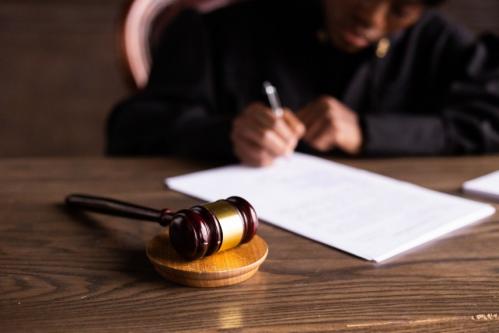

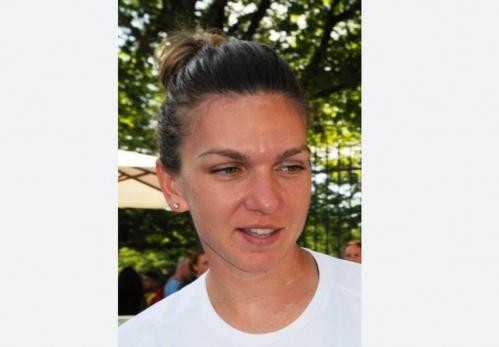


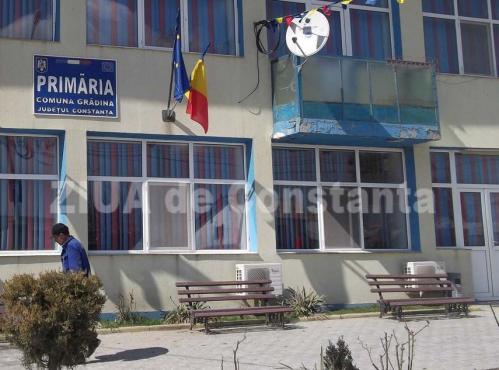



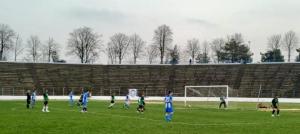
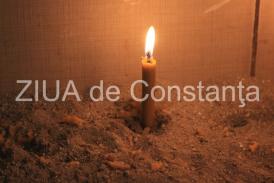
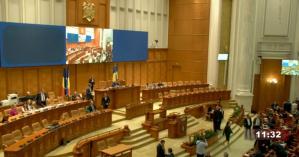
_thumb2.jpg)
